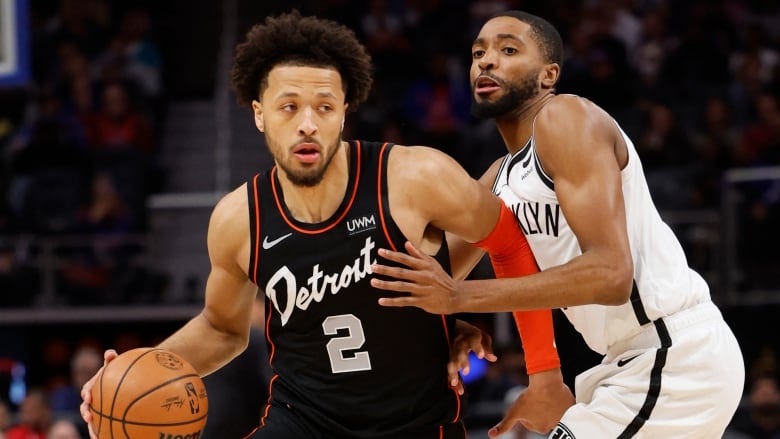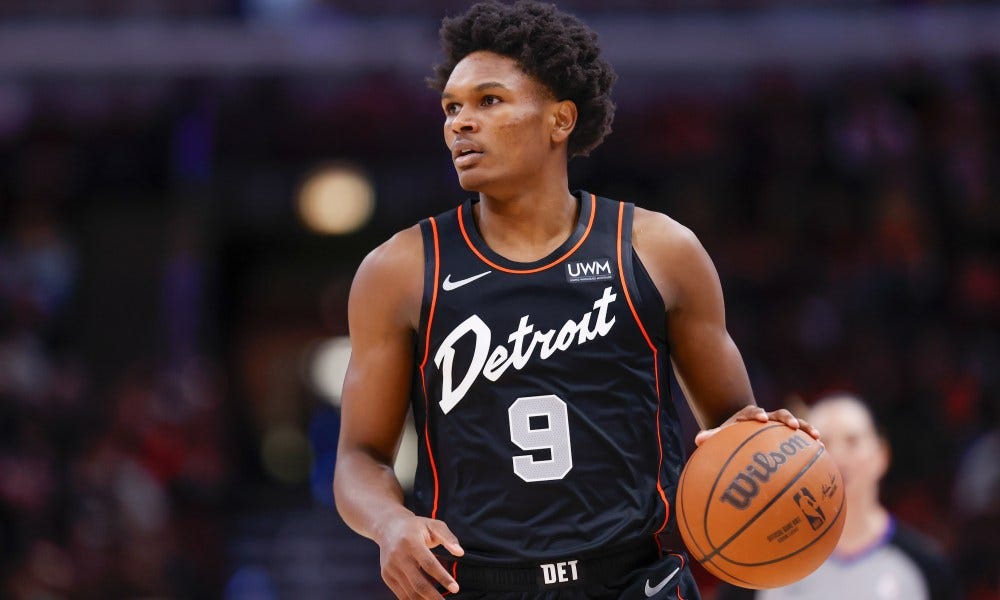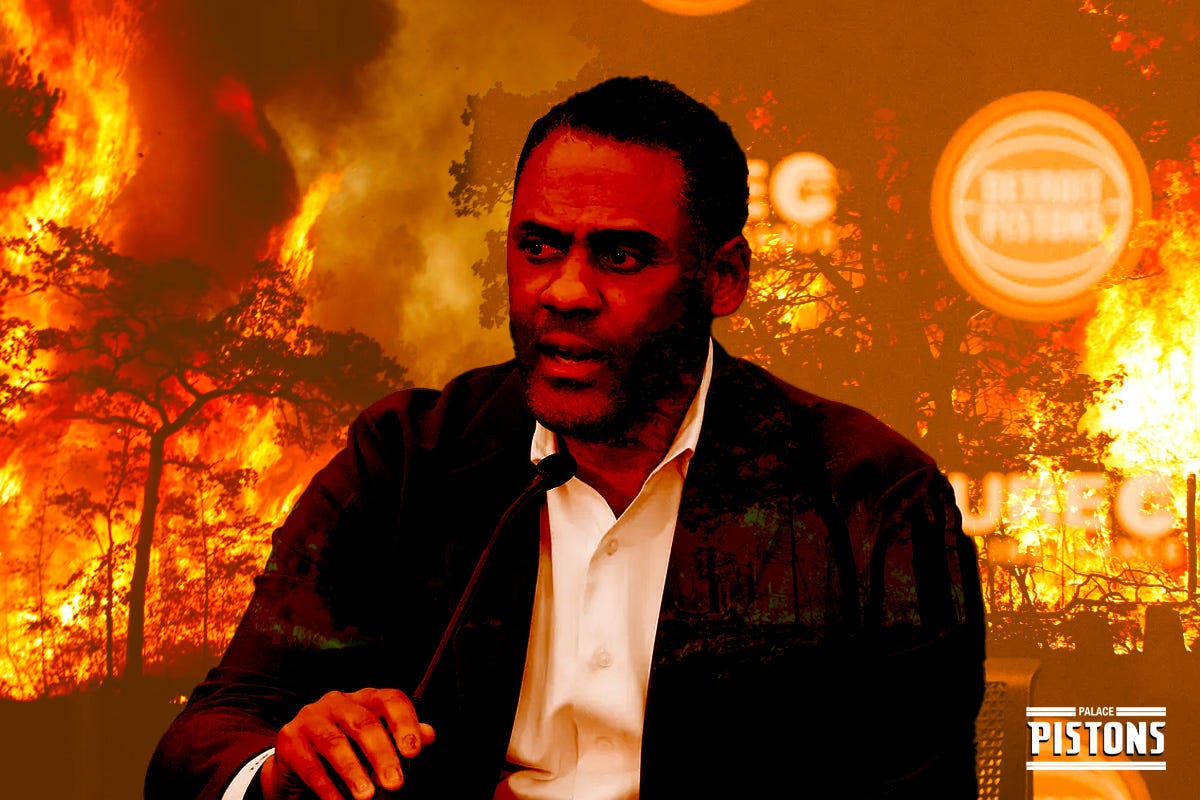The Pistons season is halfway over. What have we learned?
The Pistons have had a disastrous season, but there are still some key takeaways.
The Detroit Pistons have just crossed the halfway point of the 2023-2024 season and things have not gone exactly according to plan. Or even slightly according to plan.
Okay, fine. It has been an unmitigated disaster.
Whether you want to place the blame on the players, the head coach, or the front office, the fact of the matter is that nobody could have predicted four wins after 41 games.
Not even the greatest of skeptics would have dared propose that the Pistons, in year four of their rebuild, would be on pace to be the worst team in NBA history.
Or that they’d put together the longest losing streak on record — 28 games in a row that were even worse to watch than it sounds.
As Tyronn Lue said about the post-LeBron Cleveland Cavaliers in 2018 (in which he lasted less than ten games), there would be a lot of wins and lessons. Borrowing that mantra for the Pistons this season, what have we learned?
Cade Cunningham can be “The Guy”
Amid that massive losing streak, the one constant (other than mocking Troy Weaver or Monty Williams over their ineptitude) was Cade Cunningham playing like the number one option.
In those 28 games, Cunningham averaged 23.4 points, 4.3 rebounds, and seven assists per game on 45.2% shooting. In the last six games of the streak, Cunningham turned on the afterburners and averaged 31.7 points on 57.1% shooting, including 46.4% from three-point land. He played like a star, the same star that Detroit envisioned when they selected him first overall in the NBA Draft.
What did we learn?
It turns out Cunningham, like any blue-chip prospect on a bad team, needs good players around him to succeed. His shooting percentage jumped eight percent after Bojan Bogdanovic returned from a calf strain. The spacing Bogdanovic provides opens up the floor so much, giving Cade opportunities to get to the rim and get more open looks. An offense with more space to operate is the name of the game in today’s NBA and the Pistons, thankfully, recognize that. Now if only we could move on from a non-shooting big at power forward…

Isaiah Stewart is not a starter
Yes, one of the biggest names on the Pistons’ beat has routinely advocated for Isaiah Stewart to be the starting power forward. And yes, at times he has hit a few threes to justify the “stretch-four” moniker being pushed.
“Something to monitor”, we’ve been told.
But the truth is that the double-big system the Pistons want to run is flawed. Stewart and his front-court partner, Jalen Duren, are not a match made in heaven. Neither can space the floor, neither are dominant defenders, neither excel at playmaking (though Duren prototypes as someone who eventually could), and neither is trustworthy enough to put the ball on the deck. It only works if at least one of the bigs can shoot and stretch the floor or be dominant in some other indispensable way.
But wait! The Cavaliers start two bigs who can’t shoot!
Yes, that is true. The difference is Evan Mobley has Defensive Player of the Year upside and Jarrett Allen is one of the most efficient offensive players in the league with abnormally good defensive versatility. The Cavs themselves are watching Allen play the best ball of his career without Mobley next to him, which no doubt is making a few decision-makers rethink their two-big strategy as well.
To make matters worse, the Pistons locked in “Beef Stew” with a four-year $64 million contract extension this past summer. Why did they do this? Well, it appears in no small part to salvage something from the 2020 NBA Draft. That is a terrible reason to keep a player, especially when trying to shoehorn him into a role he is not able to adequately fill. Stewart can still get his minutes off the bench as a high-energy guy who will body up on defense, but the experiment of him being even an average shooter and starting stretch-four needs to end.
Troy Weaver probably needs to go
Troy Weaver was hired in June of 2020, and most of his moves since have been questionable at best. Killian Hayes has flopped hard. Saddiq Bey, who would certainly be playing (if not starting) on the Pistons right now, was traded away for one of the worst players in the league. Bruce Brown and Luke Kennard were sent packing as well, the former being an integral part of the NBA-champion Denver Nuggets. His roster construction has hampered the team for years, mostly with too many ill-fitting bigs and a lack of wings.
Repeatedly, year after year, there has been an expectation from the fan base for Detroit to utilize their cap space to sign good players and make a playoff push — to no avail. Just this past offseason,
Weaver, who penned a letter to fans in April that the team would be more aggressive in getting better, sat on his hands and used the cap space to absorb players who don’t play (Joe Harris) or can’t (Monte Morris).
Just one year ago, Bogdanovic said he was informed by the Pistons that they “were going to be great next year”. Well, it’s next year, and the Pistons are on pace to be the worst team in NBA history.
Personally speaking, I feel it would be malpractice to let Weaver try and trade his way out of the mess he created. At this point, nearly four years into his tenure, there is zero precedence to suggest he will make the right move. In year four of a rebuild, the Pistons are worse off than they were in year one. Detroit has regressed every season since hitting the reset button. The offseason gambles Weaver has made and the non-obvious draft selections range from ineffective to disastrous. It just simply has not worked out and it is time to move on.

Quick Hits
Rapid-fire time. Here are a few other things we’ve learned about the Pistons so far this season.
Jaden Ivey is a good basketball player and should only be moved if it brings back a good starter, at worst. Without Cunningham, he has averaged 23 points, five rebounds, and 6.2 assists per game. When he gets rolling, Ivey is a force to be reckoned with.
Ausar Thompson is a unique, valuable player. His defense, athleticism, playmaking, and rebounding are invaluable, “cant-be-taught” traits that the Pistons should want to build around.
Monty Williams is certainly a coach of a basketball team, but his decision-making has been downright baffling to the point I am not sure he watched any film of last year’s team.
Ivey, for context, did all of the playmaking last season with Cunningham out. How Williams did not recognize and utilize that information is beyond me.
Starting a guy, and not thinking about it, seems like a bad strategy. Livers went on to score 10 of the Pistons’ 148 points that night. They gave up 154.
So a lot has been learned about the Pistons so far this season. There are plenty more I did not get to either, but avoiding carpel tunnel had to be part of my decision-making. And plenty more will likely be learned in the second half of the season.
Perhaps the most sobering lesson learned this season is this: the Pistons are marginally, ever-so-slightly, closer to the playoffs than they were in 2020, and there is a lot of work to be done to make a trip to the postseason a reality.





